John Brogden reveals the mental health struggles of well-known Australians
Jacqui Lambie is one of 15 Australians who shared the story of their darkest days – and how they found their way back – in John Brogden’s surprisingly hopeful book.
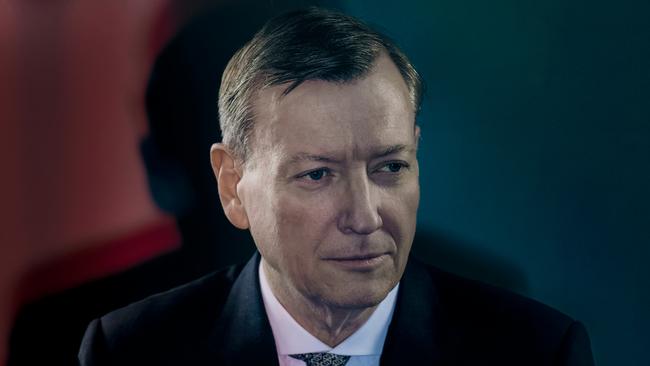
John Brogden, businessman and former politician, is visiting James Packer, the billionaire investor.
They are old friends but they are not hunkered down here in Packer’s Argentinian polo ranch to talk finance and politics or swap updates about their families.
This two-day encounter will cover dark topics; private and painful subjects that he could easily avoid but chooses to share with a frankness that will surprise.
“I’m not doing this because I am trying to get more publicity about who I am,’’ Packer observes.
“I’m doing this because I think you’re a good cause.’’
The cause is suicide prevention and Brogden is asking Packer to go deep, to describe feelings that have few words, actions beyond most people’s comprehension.
“How close to suicide did you get?’’ Brogden probes.
“Is depression and mental illness an everyday thing for you?”
In Canberra, Brogden sits down with Senator Jacqui Lambie in her Parliament House office. He doesn’t know her, but she has agreed to take him through her life, with all its highs and a devastating low point.
“What happened after your suicide attempt,’’ he gently asks.
“You must have been proud when you made that transition from a psych unit to a Senator?”
In a boardroom in Sydney’s big end of town, former rugby league star Preston Campbell is sitting opposite Brogden talking sport, family – and a spiral that led to two suicide attempts months after he won the 2001 Dally M medal.
“I wanted to injure myself so badly in the hope I wouldn’t wake up,’’ Campbell confides.
Brogden will have these conversations with 15 Australians. Some are household names, including Packer, surfing champion Layne Beachley and Olympian Ian Thorpe.
Others are not so well known: Queensland farmer Peter Moloney; army veteran Ben Farinazzo; Muslim youth worker Annas Davids. The story of Matthew Caruana, a young Sydney man left in a wheelchair after a suicide attempt, takes Brogden’s breath away.
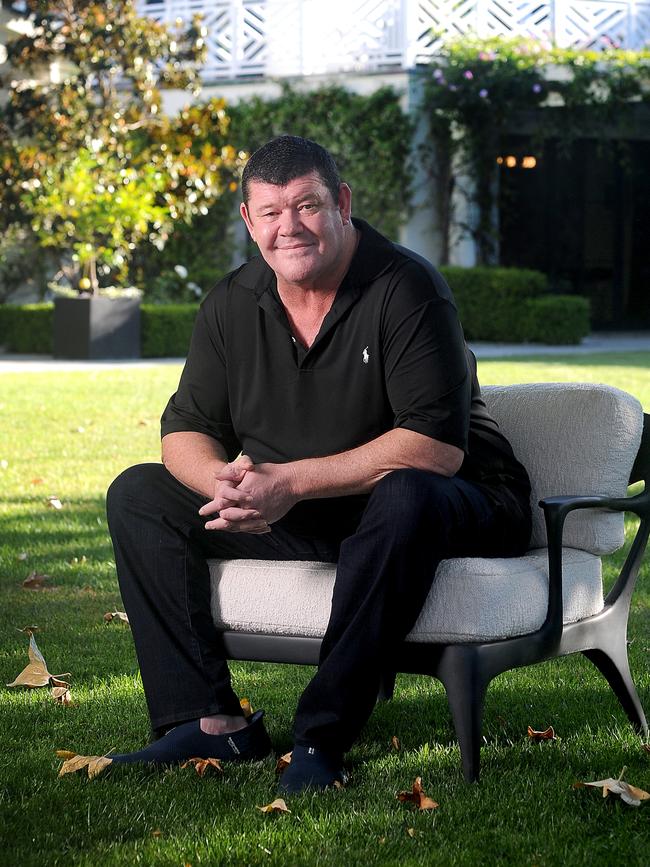

He will talk with them about life, their moments of utter despair, and the road back to happiness. On both sides there will be tears and laughter and buckets of empathy. These are shared experiences no one wants to have, questions few want to consider: “Did you want to die? Did you want to kill yourself?”
The former NSW Liberal leader can broach this subject with friends and strangers because he had his own very public breakdown and first suicide attempt almost two decades ago – and he then made a decision to speak about it, and keep speaking about it.
“Talking about mental illness is not attractive, but we need to [do it],’’ Preston Campbell tells him. “That’s why I agreed to be involved.’’
Once, the mere thought of airing these conversations in public would have been anathema, the direct questions and frank language an affront. There are no euphemisms in Brogden’s world, no diluted talk of misadventure or mental health incidents. “We know we have to confront it,’’ he says. Talk plainly and hear the stories not just of death – on average nine Australians die by suicide every day – but of survival.
And so he collected stories of living from people who wanted to die. Compiled them in a book. There is a way back from the brink, he says. There is hope. He is proof of that, and so are the participants in this project, a varied bunch with nothing much in common but for their struggles with mental health and moments of suicidal thinking.
They do share one thing, Brogden is quick to point out. “All are united in knowing now that life is better than death.’’
It was at least 15 years ago when John Brogdenfirst spoke about his suicidality with James Packer. In turn Packer opened up, as people do when they meet Brogden; his ease in talking about his own experience opens the door for fellow travellers who wouldn’t otherwise dream of speaking out.
“Mate,’’ Packer said. “I’ve been there myself.’’
Dressed in a business suit in his Chifley Tower office in Sydney’s CBD, Brogden, 55, looks at home; he serves on a number of boards and moves easily in this world of bankers and business. He has a full personal life on Sydney’s northern beaches with wife Lucy and three children. He looks the portrait of success and yet readily admits that he lives with depression and suicidal ideation. When he has a severe emotional crisis he thinks about killing himself. “In the really bad times it means I think of a plan to kill myself. I’ve acted on those plans … often enough that I’ve tried to take my own life.’’
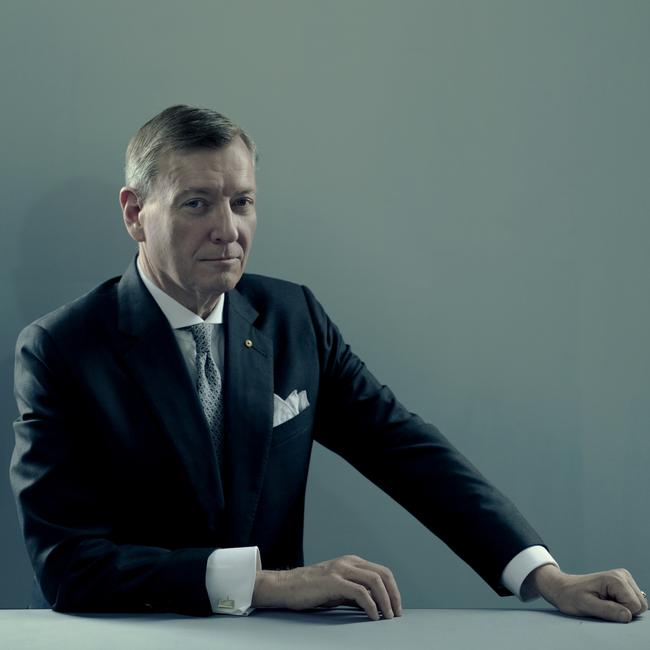
Brogden has known Packer, 56, for more than 20 years and counts him as a friend. “He has always been very open with me about his periods of suicidality and his mental illness,’’ Brogden says. So when he contacted Packer and asked him to be involved in his new book, Profiles in Hope, he didn’t hesitate. Importantly, he didn’t impose any conditions. “James was open, self-reflective and searingly honest. He held nothing back,’’ Brogden says.
The billionaire has publicly broached his mental health battles in recent years and chips in money where it might help: he and the Packer Family Foundation established the $7 million James Packer Chair in Mood Disorders at UNSW and donated $6 million to global advocacy group Lifeline International, of which Brogden is honorary president.
Like Brogden, Packer – the one-time richest man in Australia – leads a fortunate life. He acknowledges this fact: “I’m very conscious of that,’’ Packer says. “I think I’ve been lucky. I think I’ve led a very interesting life and a privileged life … I think now that living an interesting life is a big prize.”
He says he’s now the happiest he has ever been, but speaks frankly of serious periods of depression and substance abuse often linked with his business crises. “I felt like I was a failure,’’ he says of one low point following the 2001 collapse of telecommunications company One. Tel. “I felt there was no way out.’’
Brogden: “And you got to feeling suicidal?”
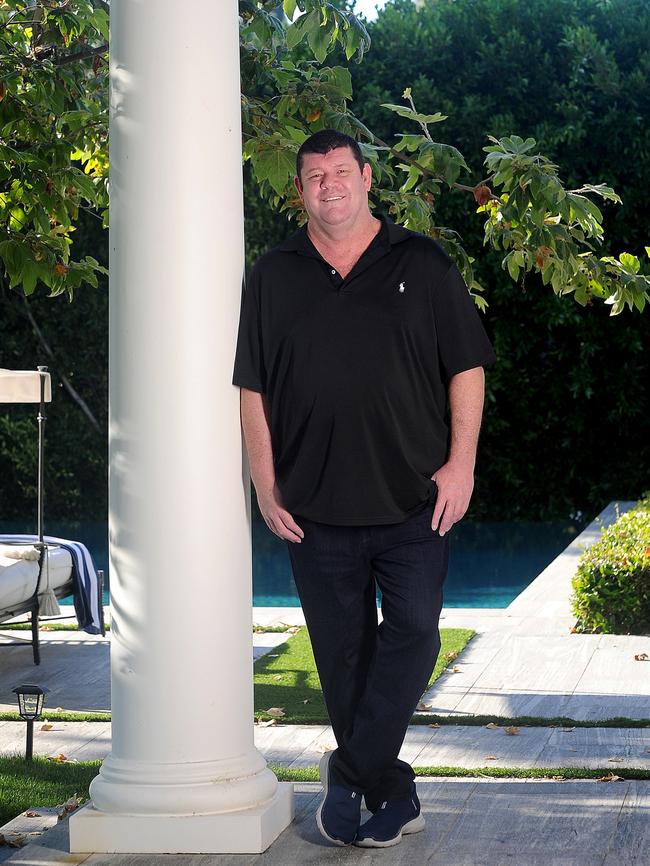
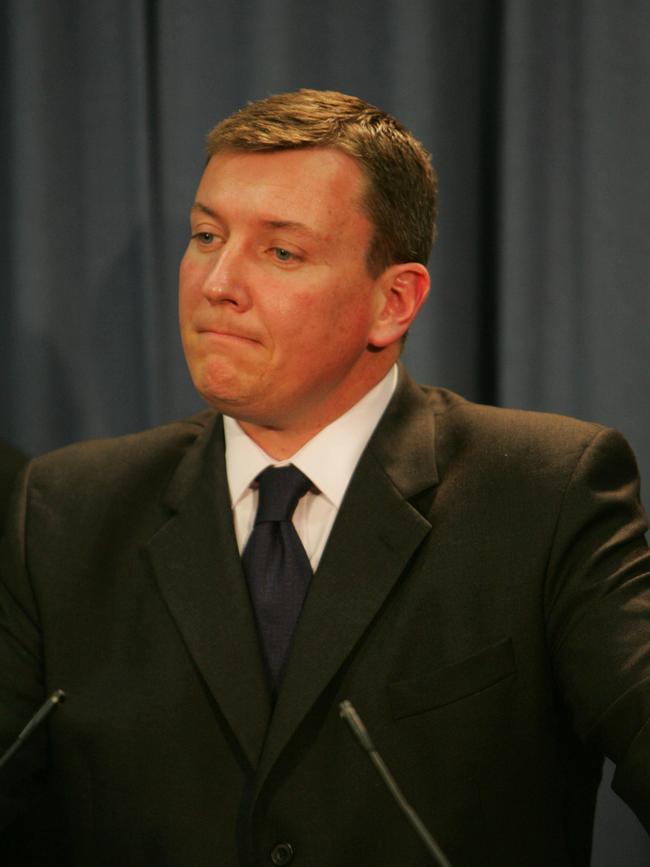
Packer: “Yeah, I got to feeling suicidal. I was abusing drugs. I was in a terrible state.’’
He describes the pursuit for answers, from Scientology to psychiatry; the conflicting medical advice; the feelings of helplessness; the alcohol and cigarettes and ongoing battle with his weight. “I’ve been diagnosed with different things by different doctors and they’ve given me different medications and some doctors have said definitively that I’m bipolar. And other doctors have said they’re not sure. I’ve found that personally confusing,’’ Packer says.
He’s been through cycles of antidepressants and sleeping drugs, even a brief stint on psilocybin, the active ingredient in magic mushrooms, prescribed by his doctor to help him withdraw from other medications. There have been frightening moments, such as the time he started hallucinating when he was substance-free. “That really was a bit scary because it wasn’t substances. And I was seeing things that just weren’t there. It hasn’t happened since …’’
As they talk about his depressive episodes, which culminated in a stint in a top US psychiatric hospital, Brogden asks: “How close to suicide did you get?’’
Packer: “I might have ended up killing myself without realising it, if you know what I mean. Overdosing or something. So, I’m not sure how close I was, you know.’’
Brogden: “But you’ve thought about it?”
“I’ve thought about it. I’ve had dark thoughts. I’ve had dark thoughts but probably not that close is the truth.’’
Packer says he has come to recognise the triggers. “I think my mental health issues have invariably come from when I’ve lost money financially or I’ve been humiliated publicly,” he says, nominating one example of “being portrayed as this massive bad dude’’ during three state royal commissions into the Packer-backed Crown Resorts. “I don’t do well when I’m under pressure,’’ he acknowledges.
In an interview with The Weekend Australian Magazine Brogden points to the unpredictable path that can lead to thoughts of self-harm. For some, it is part of a long battle with mental illness or trauma. For others, such as Packer, it comes at a time of personal difficulty or public humiliation. Often it is an act of impulse. “We can live our lives with good mental health but, in a moment of crisis, come to a place where we attempt suicide,’’ Brogden says.
Former Federal Labor senator Nick Sherry was an ambitious and confident young man whose life was politics. “Everything was focused on my political life … that was my total life,’’ he tells Brogden. And then, in October 1997, he got caught in what was known as the travel rorts affair; he’d been claiming accommodation expenses in Hobart while living in his mother’s house. “I felt a great disappointment with myself for being stupid,” he now admits.
Sherry attended a meeting with the Labor leadership group including Kim Beazley and Gareth Evans and then he went back to his Canberra flat. He’d come to a decision. “My conclusion was, that was the end of my political career – so, consequently, that was the end of my life. They were both connected. Which is why I made the decision to take my own life because there wasn’t anything else for me there,’’ he tells Brogden.
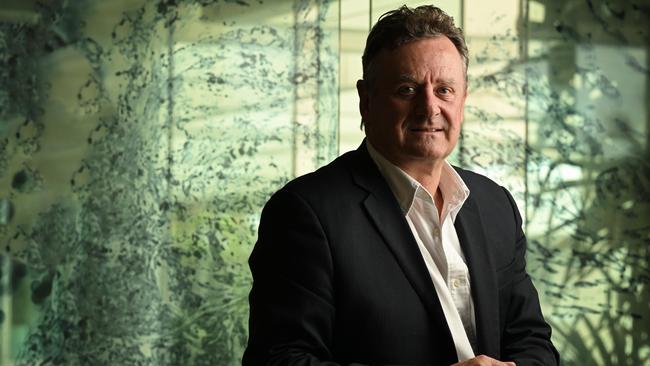
Sherry was found in a pool of blood in his flat. “I’m told it was very close,’’ he says.
“Have you ever tried again?” Brogden asks
“No, never felt close to,” Sherry responds. He’s gone on to have a successful career in business and a fulfilling personal life.
Brogden and Sherry are old friends – Brogden was president of the NSW Young Liberals in 1993 when he first met Sherry, then a junior minister in the Keating government. They shared ambition and talent, and both had promising political futures before their very public downfalls.
In 2005 Brogden was aged 36. He was at the peak of his political career as NSW opposition leader, with a real shot at achieving his dream of becoming premier. It came undone on a Friday night out. “I behaved badly and said offensive things at an event. I apologised. In the aftermath I resigned my leadership and decided to kill myself.”
Brogden was found with self-inflicted injuries in his northern beaches electoral office and was rushed to hospital where he was placed under suicide watch. He had Lucy and a toddler at home but he’d convinced himself his death would remove the shame and burden from those who loved him. “I ask that you never judge the most irrational of all actions rationally,’’ he says now.
His attempt came at a moment of extreme stress but looking back, he realised he’d had suicidal thoughts from a young age. “I remember sitting in my bed when I couldn’t go to sleep and there was a lot of pressure in the family. I don’t even know whether I knew what suicide meant, but I knew that if things got too bad, that was my answer,” he says.
As a hungry young political leader he says he became adept at masking, and in the lead-up to his suicide attempt he was spinning out of control. “I was getting almost manic in my behaviour. Looking back, Lucy and I knew something was going to happen.’’
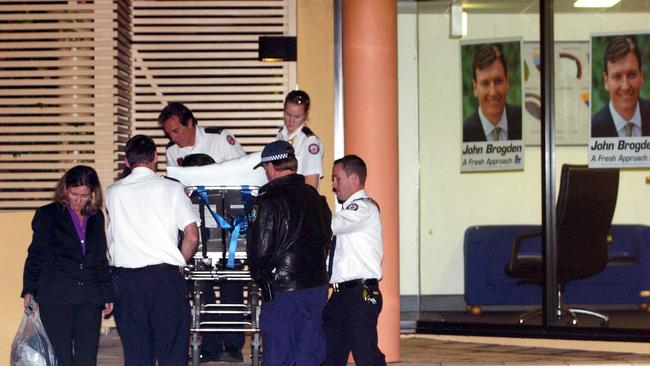
Some of Brogden’s interview subjects can point to a single disastrous life event which precipitated a suicide attempt, while others experienced a longer build-up. For Jacqui Lambie it followed years of depression and excruciating back pain which resulted in her being medically discharged from the army and embroiled in a battle with the Department of Veteran’s Affairs. “The reason I had the depression was the pain. I just couldn’t deal with it. Over the course of those seven years I was on antidepressants and lots of medications,’’ she tells Brogden.
“By the middle of August 2009 I couldn’t live with the pain anymore. I’d had enough. I left the kids some letters. I’d written them about three weeks beforehand because I knew I was on my last legs. It was just about determining how I was going to do it.’’
She recalls waking up in hospital where she’d been in a 48-hour induced coma after her suicide attempt. “I had my two sons standing there and my father. And the looks on their faces, I’ll never forget it. It was ghastly. They were like, ‘Why?’’’
Lambie says her time in a psychiatric unit changed everything. She was put on a proper pain management regimen, she got the help she needed. “Did your depression improve or disappear?” Brogden asks.
“It disappeared. Once I got [the pain] under control, the depression just lifted,’’ she says.
For Pat Hall, co-CEO of Liverpool Neighbourhood Connections in southwest Sydney, the descent began after her husband walked out when the youngest of their three children was six years old. “I don’t know whether it was rejection. I don’t know whether it was that I’d lost everything,’’ she tells Brogden. “But I knew I couldn’t survive … if anyone ever says you’ve got to stay strong for the kids, that’s the wrong thing to say. I wasn’t any good to the kids. I couldn’t get out of bed in the morning, I couldn’t exist.’’ She tried to put on a brave face as she planned her death, waiting for the day her husband had taken the children.
And then she locked the doors and scrawled a brief note, “I’m sorry kids”.

Her suicide bid was interrupted by a neighbour and she was taken to hospital for psychiatric care. “They’re the ones that worked out what was wrong with me. They said I had no self-esteem, no confidence in myself, and they were right. They made me do a course in building up my self-confidence. When I came out of it after 10 weeks I wondered why the hell I’d done that. But I got over it, and I started to have a life.”
It is these messages that Brogden wants to amplify. There is a way back from the brink to a full and rewarding life. After his first attempt in 2005 he devoted his time to suicide prevention: doing interviews, speaking at events and in boardroom meetings, and as chair of Lifeline Australia until 2021.
“After politics I went on to a career in business. My wife Lucy and I have three children. I live a life beyond what I ever dreamed possible as a child,’’ he says. Yet he lives with suicidal ideation. “It’s not every day, week or month I feel like this, but it happens often enough to be a permanent part of me.” Like Packer, he has come to recognise the triggers and is aware of the need to manage his time and activities. “What I’ve learned is not to get too busy, or physically and mentally exhausted.”
Packer knows he has to try to avoid volatile, high-pressure business situations. “Debt in the past has weighed on me … [and] being caught up in negative publicity cycles. That weighs on me. So I’m going to try to avoid things that cause that,’’ he tells Brogden.
He’s also aware that he struggles with the stimulation of being in cities. “I don’t spend too much time in a city. Silly as this might seem, I think places have energies about them and energies to them. And I get stimulated by a place. I need to be in relaxing places otherwise I get wound up.’’
Olympic champion Ian Thorpe relies on a written list to ballast his days. He suffers depression and tells Brogden of a three-month episode in 2006 during which he was suicidal. “I was thinking of a way to do it that would look like an accident … I didn’t leave the house. I was barely functioning. I was communicating with people but no one really knew how bad it was.
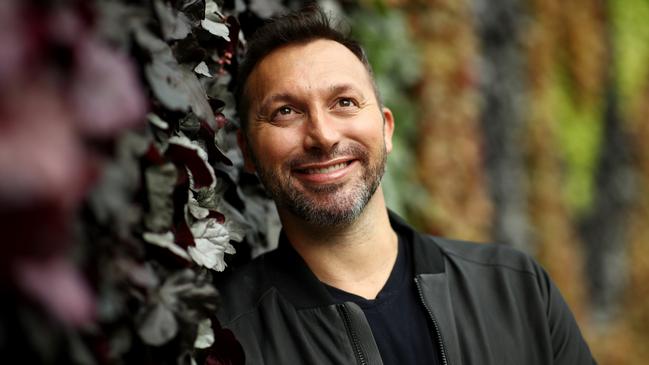
“I’m used to doing everything on my own. I’m not used to putting my hand up. But there are some things in life that are actually bigger than you, where you do actually need other people’s help, and this was one of them.’’
Now he knows the signs of slippage, and has friends he will call when he starts to withdraw. He keeps a written list of things he will do each day. “With it written down I can actually look at the list – ‘I will do this, I will do this, I will do this’ – because I know when I get through those things the following day will be better. That’s why I think it’s important to write it down.’’
Meditation and mindfulness helps but after a shoulder replacement he can no longer swim. “Mechanically, I can’t swim. I can catch a wave but I can’t swim laps … People see me as a swimmer. It’s a very big part of my life that happened a long time ago. I do other things now.’’
Brogden: “And life is good?’’
Thorpe: “Life is good.’’
There’s a surprising question John Brogden asks many of the participants in his book. “Is your life better because you tried to kill yourself?” It’s hard to think of any good that might come from a suicide attempt, but Brogden goes there because he’s asked it of himself.
Many interviewees acknowledge that hitting such a drastic low point forced them to get help, deal with issues in their life or change their lifestyle. Sherry speaks of his beautiful family, the enjoyment he gets from his coffee group of men who meet up every morning “to yack’’ around the back tray of a truck in a car park in Devonport, northwest Tasmania. “My life today is more diverse, more relaxed,’’ he says.
Brogden: “Do you think there are benefits to having hit the bottom of your life?”
“Yes there was a benefit. I wish there had been another way, but I don’t know how that would have ever happened.’’
Packer speaks with a measure of pride in the progress he’s made. He says he’s given up alcohol, cigarettes, recreational drugs and medication. “I was on a lot of medications from 2016 to 2022 … I am on nothing now.”
He quickly adds: “I’m sure some people think I should be on medication. I’m totally serious about that. Some people think I am as mad as a hatter and I probably am a little bit crazy, but, you know, I am choosing to live on a medication-free diet.”
He’s also clear on the importance of friends and family, listing the significant people in his life at different times: actors Tom Cruise (“I have nothing but love for Tom”) and Warren Beatty (“a wonderful friend to me”). Israeli Prime Minister Benjamin Netanyahu helped him in dark times “in a big way”; News Corporation chairman Lachlan Murdoch, “he’s like a brother to me’’; his ex wives Jodhi Meares and Erica Baxter, his mother Ros and sister Gretel.
Packer is at peace with his late father, Kerry, who was known to be hard on his son. “I wish I could say to him that I realise he was much more reasonable than I gave him credit for at the time,’’ he tells Brogden. “He wasn’t always right. He wasn’t God. But he had some wisdoms that were pretty special.”
For all his newfound happiness Packer doesn’t want to overstate his progress. “It wasn’t so long ago that I was on a lot of antidepressants, I was drinking, I was smoking …. and I’m still overweight, and so I don’t want to pretend that I’m better at this than I am.’’
Brogden: “Do you think you’re tougher for the next time something might go wrong?”
Packer’s response is blunt: “Not necessarily.”
Of all the interviews he did, of all the stories he heard, Brogden often reflects on Matt Caruana, the young man left in a wheelchair in 2016 at age 16 after his suicide attempt severed his spinal cord. Caruana says he turned the worst day of his life into his best years, and he credits a comment from a random stranger on a Sydney train for helping him turn his life around.

![“Talking about mental illness is not attractive, but we need to [do it],’’ says Preston Campbell. Picture: Adam Head](https://content.api.news/v3/images/bin/da290b005342c7419ebaadb45c3eb120?width=650)
The stranger was in his fifties, “a real down-to-earth Aussie bloke,” Caruana recalls. “Before he even sat down he saw me in my wheelchair and he asked: ‘What did you do to yourself?’ He was real loud about it too.’’ Caruana told the man he’d attempted suicide. “He was the first person I told. Everyone who had asked before, I said I’d had an accident or a fall. I’d never told them the truth.’’
The stranger replied: “Well that was pretty f. king stupid, wasn’t it. Look at you now.”
Then he sat across from Caruana and said, “So you’ve attempted suicide and now you’re in this wheelchair. What are you going to do about it now?” It was a question but also a challenge. That one conversation left Caruana feeling somehow lighter. It made him realise he wanted to live; helped him understand he could be open with people, truthful about his feelings. He was in control of his life. What are you going to do about it now? became his motto.
The young man who spent his adolescence feeling so worthless that he wanted to die is now a Lifeline ambassador who speaks to schools and organisations about mental fitness.
Brogden: “Do you feel worthy now, Matt?”
“Yeah I do. I’m just very blessed to be in the position I am now,’’ he says.
Brogden: “Is your life better because you tried to kill yourself?”
“Absolutely. It’s the one thing I’m most grateful for.’’
Brogden is clear about why he wanted to ask that question and he doesn’t want it misinterpreted. In compiling the book he sought expert advice and used Mindframe’s guidelines for writing about suicide. “It’s a vexed question, because the answer for people in crisis is not that you have to get to that point to bounce back,’’ he says carefully. “The message is, if you come through it – whether you’ve actively tried to take your own life or thought about it – you can come back,’’ Brogden says.
It does beg the question: is his life better because he tried to kill himself?
Brogden doesn’t hesitate. “I’d prefer not to have done it that way, but the answer is yes.’’ b
Profiles in Hope by John Brogden (Hachette, $34.99) is out September 10. Lifeline 13 11 14;
beyondblue.org.au; Kids Helpline 1800 55 1800




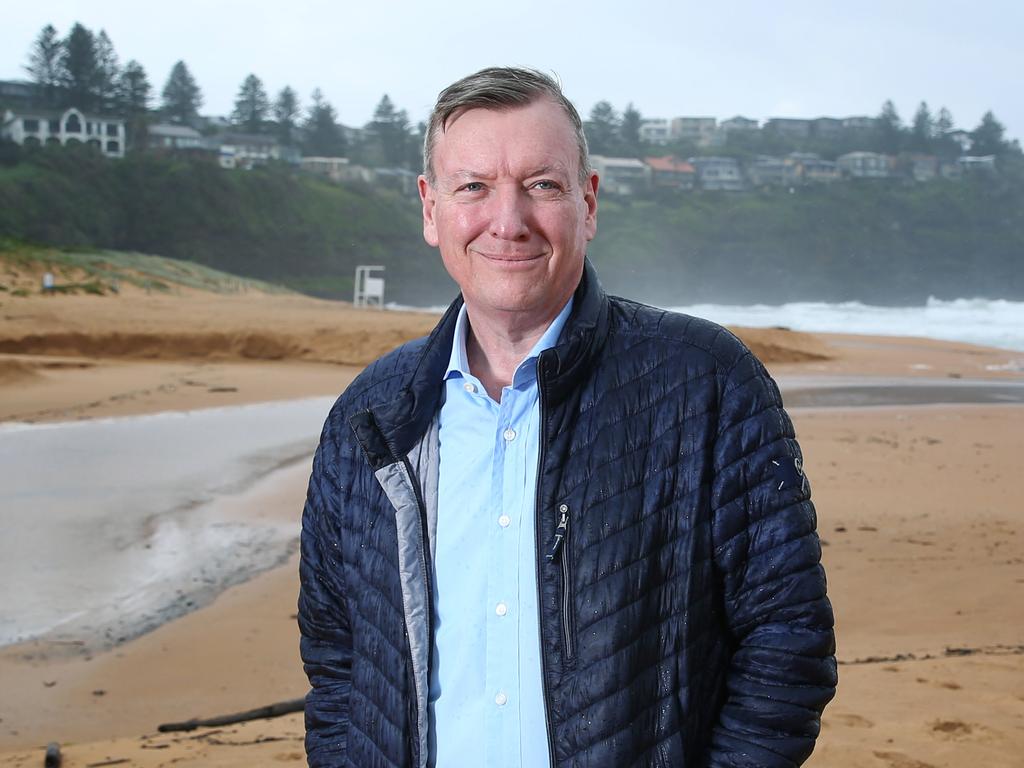
To join the conversation, please log in. Don't have an account? Register
Join the conversation, you are commenting as Logout